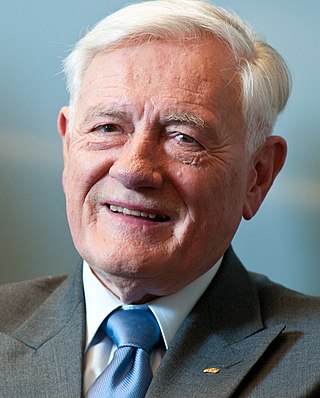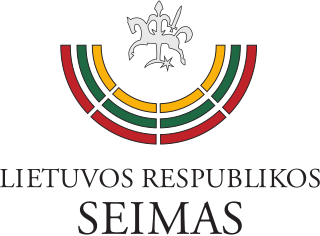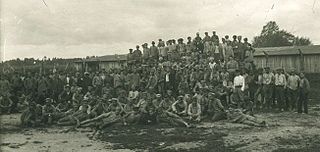
Belarus, officially the Republic of Belarus, is a landlocked country in Eastern Europe. It is bordered by Russia to the east and northeast, Ukraine to the south, Poland to the west, and Lithuania and Latvia to the northwest. Belarus spans an area of 207,600 square kilometres (80,200 sq mi) with a population of 9.1 million. The country has a hemiboreal climate and is administratively divided into six regions. Minsk is the capital and largest city; it is administered separately as a city with special status.
The history of Lithuania dates back to settlements founded about 10,000 years ago, but the first written record of the name for the country dates back to 1009 AD. Lithuanians, one of the Baltic peoples, later conquered neighboring lands and established the Grand Duchy of Lithuania in the 13th century. The Grand Duchy was a successful and lasting warrior state. It remained fiercely independent and was one of the last areas of Europe to adopt Christianity. A formidable power, it became the largest state in Europe in the 15th century spread from the Baltic Sea to the Black Sea, through the conquest of large groups of East Slavs who resided in Ruthenia.

Jogaila, later Władysław II Jagiełło, was Grand Duke of Lithuania, later giving the position to his cousin Vytautas in exchange for the title of Supreme Duke of Lithuania (1401–1434) and then King of Poland (1386–1434), first alongside his wife Jadwiga until 1399, and then sole ruler of Poland.

The Polish–Lithuanian Commonwealth, formally known as the Kingdom of Poland and the Grand Duchy of Lithuania and also referred to as Poland–Lithuania or the First Polish Republic, was a federative real union between the Kingdom of Poland and the Grand Duchy of Lithuania, existing from 1569 to 1795. This state was among the largest and most populated countries of 16th- to 17th-century Europe. At its peak in the early 17th century, the Commonwealth spanned nearly 1,000,000 km2 (390,000 sq mi) and supported a multi-ethnic population of approximately 12 million as of 1618. The official languages of the Commonwealth were Polish and Latin, with Catholicism as the state religion.

The Grand Duchy of Lithuania was a sovereign state in northeastern Europe that existed from the 13th century, succeeding the Kingdom of Lithuania, to the late 18th century, when the territory was suppressed during the 1795 partitions of Poland–Lithuania. The state was founded by Lithuanians, who were at the time a polytheistic nation of several united Baltic tribes from Aukštaitija. By 1440 the grand duchy had become the largest European state, controlling an area from the Baltic Sea in the north to the Black Sea in the south.

Valdas Adamkus is a Lithuanian politician, diplomat and civil engineer who served as the fifth and seventh president of Lithuania from 1998 to 2003 and again from 2004 to 2009.

The Seimas of the Republic of Lithuania, or simply the Seimas, is the unicameral legislative body of the Republic of Lithuania. The Seimas constitutes the legislative branch of government in Lithuania, enacting laws and amendments to the Constitution, passing the budget, confirming the Prime Minister and the Government and controlling their activities.
Mindaugas Gervaldas is a Lithuanian radical nationalist and a Neo-Nazi. He was a member of the Lithuanian National Defence Volunteer Forces. He has been a member, founder, and chairman of several different Neo-Nazi political parties. Only one party, the National Democratic Party of Lithuania, was officially registered and participated in the 2003 municipal elections. Murza and three others were elected to the council of the Šiauliai City Municipality.

Polonization or Polonisation is the acquisition or imposition of elements of Polish culture, in particular the Polish language. This happened in some historic periods among non-Polish populations in territories controlled by or substantially under the influence of Poland.

Tomas Venclova is a Lithuanian poet, prose writer, scholar, philologist and translator of literature. He is one of the five founding members of the Lithuanian Helsinki Group. In 1977, following his dissident activities, he was forced to emigrate and was deprived of his Soviet citizenship. Since 1980, he has taught Russian and Polish literature at Yale University. Considered a major figure in world literature, he has received many awards, including the Prize of Two Nations, and The Person of Tolerance of the Year Award from the Sugihara Foundation, among other honors.

Lithuania competed at the 2000 Summer Olympics in Sydney, Australia.
The A Lyga is the top division of professional football in Lithuania. It is organized by Lithuanian Football Federation (LFF) (Lithuanian: Lietuvos Futbolo Federacija).
The Lithuanian Security Police (LSP), also known as Saugumas, was a local police force that operated in German-occupied Lithuania from 1941 to 1944, in collaboration with the occupational authorities. Collaborating with the Nazi Sipo and SD, the unit was directly subordinate to the German Kripo. The LSP took part in perpetrating the Holocaust in Lithuania, persecuting the Polish resistance and communist underground.

The Poles in Lithuania, also called Lithuanian Poles, estimated at 183,000 people in the 2021 Lithuanian census or 6.5% of Lithuania's total population, are the country's largest ethnic minority.

The Holocaust resulted in the near total eradication of Lithuanian (Litvaks) and Polish Jews[a] in Generalbezirk Litauen of the Reichskommissariat Ostland in the Nazi-controlled Lithuania. Of approximately 208,000–210,000 Jews at the time of the Nazi invasion, an estimated 190,000 to 195,000 were killed before the end of World War II, most of them between June and December 1941. More than 95% of Lithuania's Jewish population was murdered over the three-year German occupation, a more complete destruction than befell any other country in the Holocaust. Historians attribute this to the massive collaboration in the genocide by the non-Jewish local paramilitaries, though the reasons for this collaboration are still debated. The Holocaust resulted in the largest loss of life in so short a period of time in the history of Lithuania.

The Lithuanian–Soviet War or Lithuanian–Bolshevik War was fought between newly independent Lithuania and the Russian Socialist Federative Soviet Republic in the aftermath of World War I. It was part of the larger Soviet westward offensive of 1918–1919. The offensive followed the retreat of German troops and sought to establish Soviet republics in Ukraine, Belarus, Lithuania, Latvia, Estonia, Poland and link up with the German Revolution. By the end of December 1918 Soviet forces reached Lithuanian borders. Largely unopposed, they occupied one town after another and by the end of January 1919 controlled about two thirds of the Lithuanian territory. In February, the Soviet advance was stopped by Lithuanian and German volunteers, who prevented the Soviets from capturing Kaunas, the temporary capital of Lithuania. From April 1919, the Lithuanian war went parallel with the Polish–Soviet War. Poland had territorial claims over Lithuania, especially the Vilnius Region; these tensions spilt over into the Polish–Lithuanian War.

The military occupation of Lithuania by Nazi Germany lasted from the German invasion of the Soviet Union on June 22, 1941, to the end of the Battle of Memel on January 28, 1945. At first the Germans were welcomed as liberators from the repressive Soviet regime which had occupied Lithuania. In hopes of re-establishing independence or regaining some autonomy, Lithuanians organized a Provisional Government that lasted six weeks.
The Lithuanian A Lyga 2001 was the 12th season of top-tier football in Lithuania. The season started on 1 April 2001 and ended on 11 November 2001. 10 teams participated, and FBK Kaunas won the championship.













